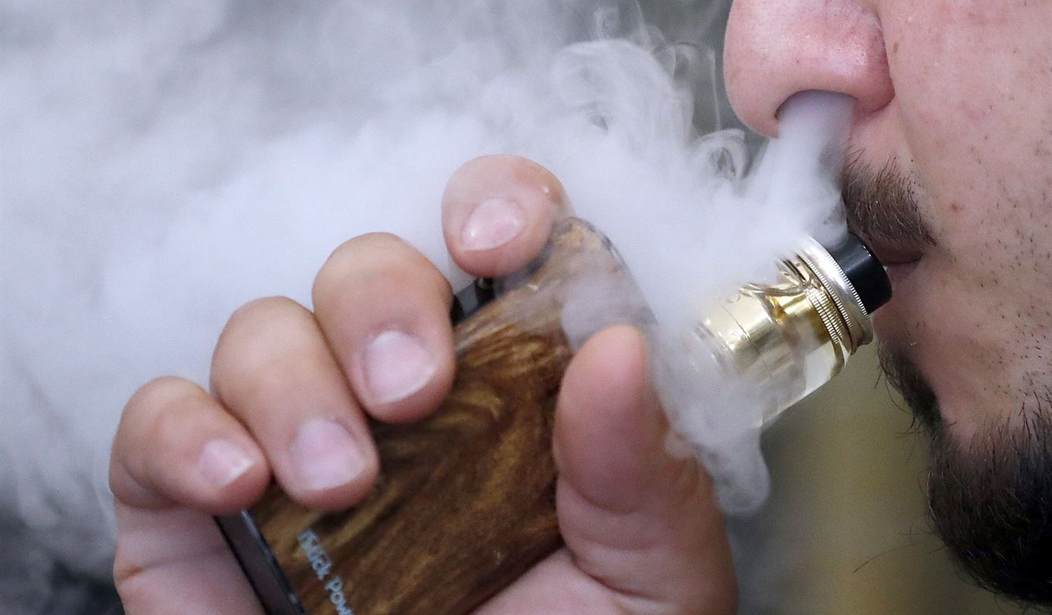In the most recent round of vaping-related fearmongering, the Center for Tobacco Products (CTP) at the U.S. Food and Drug Administration (FDA) is warning of a possible link between e-cigarettes and seizures. CTP is alarmed about 35 reported cases of seizures, from 2010 to 2018, among the millions of American adults who use vaping products.
This crazy case of anti-e-cigarette alarmism isn’t new. It is just the most recent example of the onslaught of exaggerated and groundless claims against e-cigarettes. Unfortunately, these unsubstantiated claims threaten the very existence of tobacco harm reduction (THR) devices, which have helped millions of adult smokers.
Since FDA declared a “youth vaping epidemic” in 2018, lawmakers have introduced more than 200 bills that would tax, regulate, and even prohibit e-cigarettes and vaping devices. When crafting these proposals, lawmakers are relying on a series of unwarranted claims including exaggerated levels of formaldehyde in e-cigarettes. Even worse, policymakers are propagating the false narrative that vaping causes popcorn lung. As usual, lawmakers are regurgitating baseless talking points while ignoring a series of studies produced in the past four years that totally debunk these deceitful claims.
For instance, the untrue talking point that e-cigarette vapor produces formaldehyde stems from a bogus 2015 New England Journal of Medicine articletitled “Hidden Formaldehyde in E-Cigarette Aerosols.” Unbeknownst to the public, the researchers used blatantly biased techniques to produce the formaldehyde levels, including overheating the e-cigarette. However, when a different set of researchers (with their ethics intact) recreated the study using normal conditions mimicking how vapers actually use the device, formaldehyde practically absent, and at levels “far below what [cigarette] smokers inhale.” Of course, the authors of the 2015 study made no mention of the significantly higher levels of formaldehyde produced by combustible cigarettes.
Recommended
Popcorn lung scaremongering is similar to the formaldehyde deception. Another 2015 study published in Environmental Health Perspectives noted e-cigarette liquids contain chemicals such as diacetyl, which are used to produce “buttery” flavors. The researchers heavily associated their findings to studies of popcorn factory workers, who experience heavy inhalation exposure to flavorings containing diacetyl, and are susceptible to the fatal condition known as popcorn lung.
Once again, the popcorn lung pseudo-study relied on vaping conditions far above normal levels, which produced erroneous results. Moreover, the authors of the study failed to mention combustible cigarette smokers are exposed to 750 times more diacetyl in tobacco cigarettes than in e-cigarettes. To date, there have been no known cases of popcorn lung in smokers.
Interestingly enough, the latest (and increasingly desperate) fearmongering campaign of seizure risks comes courtesy of CTP. Coincidentally (of course), this FDA subdivision just happens to be “funded solely by tobacco user fees.” In other words, cigarette smokers provide the CTP’s budget. Even more problematic, CTP’s director has worked as a consultant for GlaxoSmithKline, a pharmaceutical company, which just so happens to manufacture nicotine replacement products such as Nicorette gum and lozenges. Could CTP possibly be caught in a web of crony capitalism?
But wait, there’s more. In the “you won’t believe this section,” states and the federal government actually subsidize nicotine replacement therapy (NRT). In other words, taxpayers are paying for NRT, an FDA-approved treatment covered by traditional Medicaid. Even more laughable, “90 days of all FDA-approved smoking cessation medications”are covered by Medicaid expansion. Moreover, tax legislation introduced this year specifically excludes FDA-approved cessation devices, including NRT.
Ironically enough, lawmakers are ignoring copious amounts of research finding e-cigarettes can save states money. For instance, the R Street Institute estimated Medicaid savings “will be approximately $2.8 billion per 1 percent of enrollees” over the next 25 years, if one percent of Medicaid recipients who smoked tobacco cigarettes switched to e-cigarettes.
Unfortunately, lawmakers’ devious actions fuel the misperceptions surrounding e-cigarettes. For example, a majority of American adults erroneously believe nicotine causes cancer. A disturbing number also think e-cigarettes are just as harmful as tobacco cigarettes, despite a prominent public health group finding e-cigarettes to be 95 percent safer! As usual, irresponsible talking points, unnecessary regulations, and other misguided actions by policymakers should bear a burden of the blame for the tarring and feathering of THR products.
Until and unless lawmakers do the right thing and change the regulatory framework to accurately acknowledge the reduced harm of e-cigarettes, public health will flounder and money will be wasted because American adults will continue to mistakenly believe THR products are just as dangerous as combustible cigarettes. I, for one, will not be holding my breath in anticipation of lawmakers owning up and reversing course anytime soon. I advise you do the same.
Lindsey Stroud (lstroud@heartland.org) is a state government relations manager with The Heartland Institute, a non-partisan, free-market think tank headquartered in Arlington Heights, Illinois.

























Join the conversation as a VIP Member